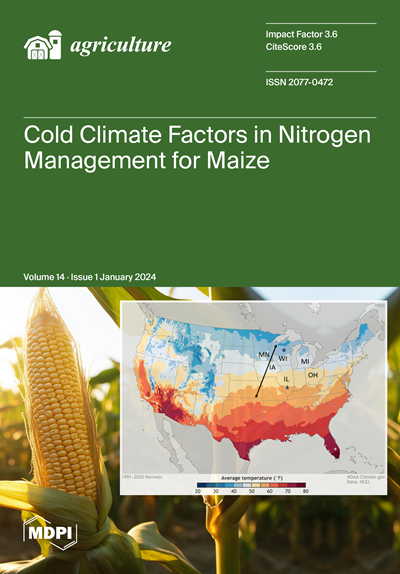Positioning Portugal in the Context of World Almond Production and Research
IF 3.6
2区 农林科学
Q1 AGRONOMY
引用次数: 0
Abstract
Almond production plays a very significant role in the Portuguese socio-economic context, especially with regard to dried fruit production. Indeed, Portugal is the third largest almond producer in Europe, producing 41,450 t of almonds in shells in 2021. This is due to its edaphoclimatic conditions that are favorable for its production. Traditionally, the north region of “Trás-os-Montes” has stood out as one of the most relevant for Portuguese almond production and bioeconomy. However, production in “Alentejo“ and “Beira Interior” will surpass the northern region in a short time as a result of the installation of new orchards. Despite its importance, there is a need to uncover genetic traits underlying phenotypic desirable traits needed to improve yield and quality but also cope and mitigate the impacts of climate change on their production. To address this, it is important to characterize the genetic resources available and the germplasm collection since they are crucial players for conservation and breeding initiatives. In this review, we describe the main cultivars of almonds cultivated in Portugal and their productive challenges. We also provide an overview of the main genetic resources available, breeding goals, and accomplishments regarding their improvement towards biotic and abiotic constraints in both Portugal and the rest of the world.葡萄牙在世界杏仁生产和研究中的定位
杏仁生产在葡萄牙的社会经济环境中发挥着非常重要的作用,特别是在干果生产方面。事实上,葡萄牙是欧洲第三大杏仁生产国,2021年生产了41450吨带壳杏仁。这是由于它的气候条件有利于其生产。传统上,“Trás-os-Montes”北部地区一直是葡萄牙杏仁生产和生物经济最相关的地区之一。然而,由于新果园的建立,“阿连特茹”和“贝拉内陆”的产量将在短时间内超过北部地区。尽管它很重要,但仍需要发现潜在的表型理想性状,以提高产量和质量,并应对和减轻气候变化对其生产的影响。为了解决这个问题,重要的是描述现有的遗传资源和种质收集,因为它们是保护和育种活动的关键参与者。在这篇综述中,我们描述了在葡萄牙种植的杏仁的主要品种及其生产挑战。我们还概述了可用的主要遗传资源,育种目标,以及在葡萄牙和世界其他地区对生物和非生物限制的改进方面取得的成就。
本文章由计算机程序翻译,如有差异,请以英文原文为准。
求助全文
约1分钟内获得全文
求助全文
来源期刊

Agriculture-Basel
Agricultural and Biological Sciences-Food Science
CiteScore
4.90
自引率
13.90%
发文量
1793
审稿时长
11 weeks
期刊介绍:
Agriculture (ISSN 2077-0472) is an international and cross-disciplinary scholarly and scientific open access journal on the science of cultivating the soil, growing, harvesting crops, and raising livestock. We will aim to look at production, processing, marketing and use of foods, fibers, plants and animals. The journal Agriculturewill publish reviews, regular research papers, communications and short notes, and there is no restriction on the length of the papers. Our aim is to encourage scientists to publish their experimental and theoretical research in as much detail as possible. Full experimental and/or methodical details must be provided for research articles.
 求助内容:
求助内容: 应助结果提醒方式:
应助结果提醒方式:


